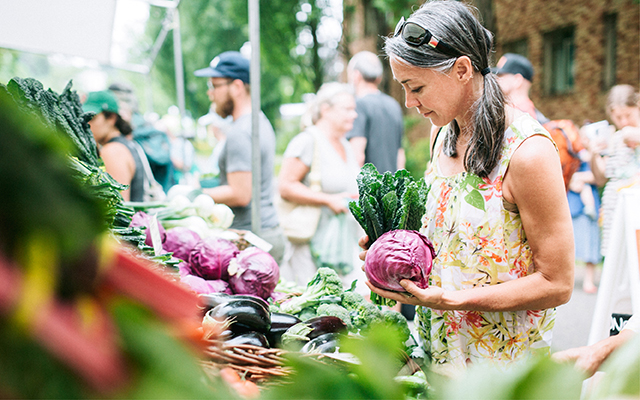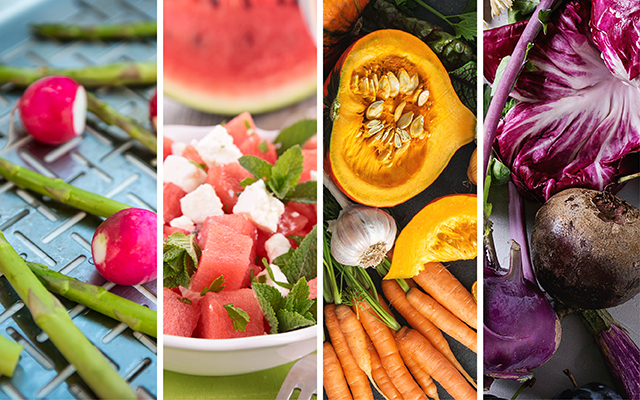It’s easy to embrace seasonal eating when the farmers’ market is in full swing. But while folks in temperate climates can enjoy local, seasonal food year-round, many others have to be flexible.
“Although the word ‘moderation’ feels overused, it’s the best term for what to practice,” says Ayurvedic practitioner Sarah Kucera, DC. “You simply can’t become too rigid about only eating seasonally. Besides, maybe what you want to eat is in season someplace else — and could be bringing balance to your current state of health.”
Fermented foods are a good way to preserve ripe produce — and provide gut-boosting probiotics year-round.
You can also take advantage of frozen and canned options, suggests Terry Wahls, MD, author of The Wahls Protocol. Frozen produce is typically picked and packaged at peak nutrition, making it a better choice than under-ripe fresh produce shipped long distances. These options can sometimes be gentler on the budget, too, she notes, helping you expand your choices when seasonal picks are limited.
“If your starting point with this way of eating is just to get more vegetables, then you might begin with affordable frozen favorites,” Wahls advises.
And there are some veggies and fruits, such as dark leafy greens and blueberries, that are worth including year-round because they’re such nutritional powerhouses, says John Bagnulo, PhD, MPH.
“The value you get from especially nutrient-dense foods sometimes goes beyond seasonality,” he notes. “It makes sense to include a few of those choices all year, because it’s harder to fill those nutritional gaps without them.”
This originally appeared as “Beyond the Harvest” in “The Case for Seasonal Eating” in the June 2018 print issue of Experience Life.




This Post Has 0 Comments